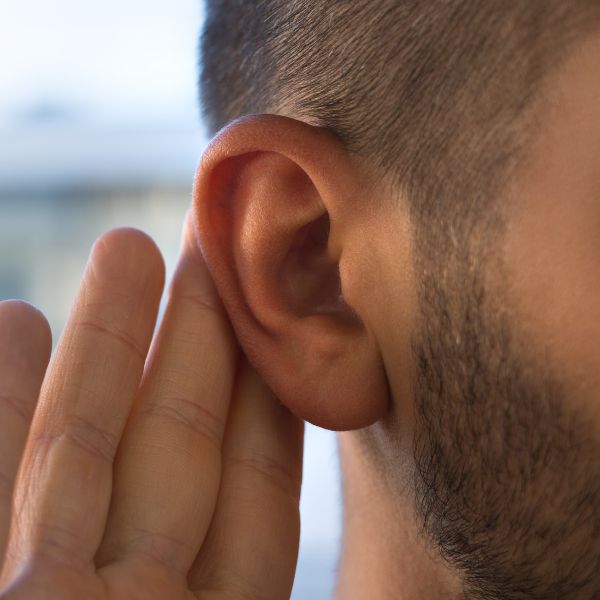Signs of Hearing Loss
Recognizing the symptoms of hearing loss can help you seek timely intervention and effective treatment. Hearing loss often develops gradually, and its impact on daily life can become more noticeable over time. Here are key signs to watch for:
1. Asking Others to Repeat Themselves
Frequent Requests for Repetition: You often ask others to repeat themselves or find yourself missing parts of conversations, especially in group settings or noisy environments.
2. Increasing TV Volume
Turning Up the Volume: You find yourself regularly increasing the volume on the television, radio, or other devices to a level that seems higher than what others need.
3. Missing Certain Sounds
Unheard Sounds: You miss out on sounds or notifications that you used to hear clearly, such as doorbells, alarms, or the sound of your name being called.
4. Difficulty Understanding Speech
Hearing but Not Understanding: You can hear sounds but often struggle to understand speech, especially when there are multiple voices or background noise.


5. Struggling in Noisy Situations
Difficulty in Crowded Places: You have trouble focusing on conversations or distinguishing voices in noisy or crowded environments, making social interactions challenging.
6. Being Told You Speak Loudly
Volume Perception: People frequently comment that you speak loudly, or you notice that you have to raise your voice to be heard during conversations.
7. Trouble Hearing on the Telephone
Phone Conversations: You find it difficult to hear and understand conversations on the telephone, often needing to ask for clarification.
8. Mental Fatigue from Conversations
Exhaustion from Talking: Engaging in conversations becomes mentally exhausting, leading to fatigue or frustration, as you work hard to follow and participate in discussions.
If you or someone you know is experiencing any of these symptoms, it’s important to get a professional hearing test.
Early detection and treatment can significantly improve your quality of life and prevent further hearing loss. Contact us today to schedule a comprehensive hearing assessment and take the first step towards better hearing health.
